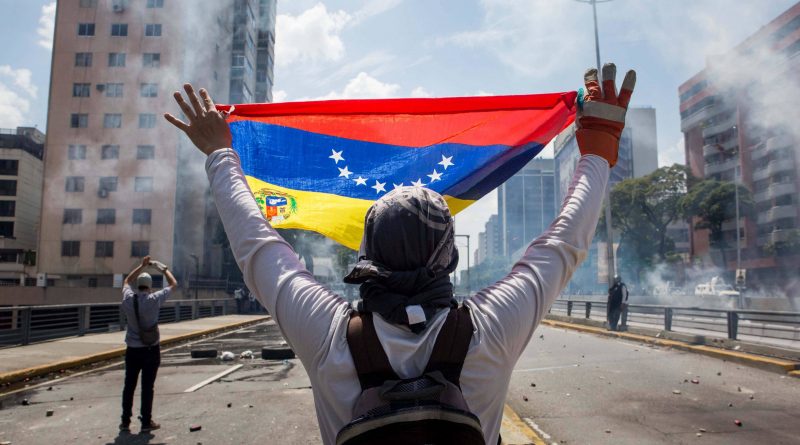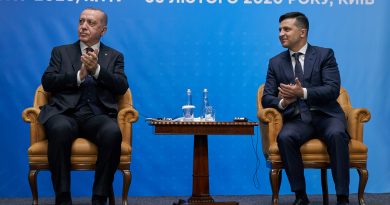Venezuelan Crisis
Venezuelan Crisis
Madison Feser
Staff Writer
The repercussions of Venezuela’s economic collapse and the government’s inability to stabilize the country has left Venezuelan people struggling to survive. In 2016, a study found that 87 percent of the population did not have enough money to purchase food, reports the Council on Foreign Relations (CFR).
On average, Venezuelans living in extreme poverty lost 19 pounds in 2016 and child malnutrition has reached 70 percent in rural communities, according to CNN and BBC respectively. Some of the most desperate in the country are current stealing and later eating, zoo animals in order to prevent themselves and their families from starving, reports the Independent.
The international community blames current president Nicholas Maduro’s socialist policies for Venezuela’s current state, reports the New York Times. The international community views Maduro’s restricting of political freedom as the primary cause of Venezuela’s economic collapse and its subsequent decline into a humanitarian disaster.
Following the election of socialist President Hugo Chavez in 1999, the country cut economic ties with the U.S. and turned toward Russia and China for support. In accordance with socialist ideals, Chavez implemented social welfare programs and began to declare privately owned lands as property of the state.
After Chavez’s death in 2013, Maduro narrowly won the presidency. Maduro’s government overspent on social welfare programs, abandoned state-owned land, and became completely dependent on oil sales, with oil accounting for 95 percent of exports and 25 percent of its GDP, according to CFR.
Unfortunately, for Venezuela, other countries began successfully dredging oil within their own borders, meaning pricey oil exports from this small South American country were no longer an international staple. The growing popularity of fracking, a process that recovers oil by injecting subterranean rocks with liquid at a high pressure to release untapped oil, means countries no longer need large natural oil springs to harvest vast quantities of oil. Despite the controversy and potential negative environmental effects of fracking, many countries adopted this method of oil dredging and are relying less on exports from countries like Venezuela.
By 2014, oil output in Venezuela fell by 20,000 barrels a day, reports Aljazeera. This caused the price per barrel to drop from $111 in 2014 to merely $27 in 2016, reports CFR. Extreme dependence on oil sales, lack of internal sustainability, and failing social welfare programs threw Venezuela headlong into a major economic crisis.
Estimates indicate the contraction of Venezuela’s GDP by double digits for the third consecutive year, according to Forbes. Hyperinflation is also due to hit over 2,000 percent during 2018, according to the International Monetary Fund. Making matters worse, Maduro blames the U.S. and its supposed economic war for the collapse of Venezuela and remains hostile to foreign business as a result, reports the New York Times.
Scrambling to rectify his country’s economic collapse without opening its ports to foreign business, Maduro issued a cryptocurrency, the Petro, in February 2018, making it the first country to do so, reports CFR.
A cryptocurrency is a digital currency backed by raw materials, such as oil, gas, gold, or diamonds. The government hopes the Petro will replace Venezuela’s near-worthless paper currency, the Bolivar. After one day of pre-sales, the Petro made $735 million and is available in both digital and hard currency, but the government soon hopes to make it available in exchange for the Bolivar. The Petro’s cost is relative to one barrel of oil, that is, about $62 a barrel, according to Aljazeera.
Maduro and his supporters hold that the petrol will alleviate repercussions of the sanctions imposed on Venezuela and raise the country from this economic collapse, but economists debate the plausibility of Maduro’s promise, reports CFR. The Venezuelan National Assembly, Maduro’s opposition party, calls the petrol illegal, reports Aljazeera. President Trump has also signed an executive order banning U.S. financial transactions using the Petro, but the Petro may not be as beneficial as Maduro hopes, or as threatening as the U.S. fears.
“The Petro has had essentially no effect on Venezuela’s real economy,” School of Diplomacy and International Relations Associate Professor and Department Chair Benjamin Goldfrank told the Diplomatic Envoy. “Inflation has continued to worsen since February when the Petro was introduced. The Petro itself lost value since its introduction, but not as much as the Bolivar. I do not think the Petro will solve or even alleviate Venezuela’s economic troubles.”
In addition to malnutrition and poverty, the economic collapse has poisoned Venezuela’s health care system as well. Hospitals are without medicine, food, water, and electricity for their patients. The Venezuelan Pharmaceutical Federation estimates that 85 percent of basic medicines are unavailable in hospitals, and basic supplies such as soap and gauze are absent from medical facilities.
As a result, maternal mortality increased by 65 percent between 2014 and 2016, with 756 women dying in childbirth in 2016 alone, reports CFR and CNN respectively. Infant mortality has also increased by 30 percent, and diseases such as diphtheria and malaria are returning to the country years after their initial eradication, reports CFR.
Increasing levels of poverty, malnutrition, and rising homicide rates have forced up to 600,000 Venezuelans from the country as of March 2018, according to CFR and the United Nations High Commissioner for Refugees. Most have crossed the border into Colombia and Brazil, creating a burden on these countries to provide for the sudden influx of refugees. Despite the upheaval, however, the Maduro regime has “vehemently denied the extent of the need for help and has blocked an effort by the opposition-led National Assembly to seek international assistance,” says Human Rights Watch.
Amidst the economic crisis that triggered the collapsing of other sectors of Venezuelan society, came to the 2018 Presidential election—which would trigger its own disruptions as well.
Since the economic collapse, Maduro has tightened his control over opposition parties. After the Democratic Unity Roundtable (MUD) took the majority in the National Assembly in 2016, Maduro began taking steps to dissolve the group, says CFR. His regime also suppressed the press in favor of state-controlled media outlets. In 2017, Maduro briefly dissolved the National Assembly which, after being reinstated, found all 545 seats filled by Maduro supporters, reports the Council on Foreign Relations.
The 2018 elections took place on May 20 despite their initial date in December, with Henri Falcón, Jabier Bertucci, and Maduro vying for the Presidency. From the start, many countries, including the U.S., called the election unfair and undemocratic due to not only the sudden date change but also to the fact that Maduro barred any opposition parties who boycotted the election from further participating in Venezuela’s political landscape, reports the New York Times and Aljazeera.
The results of the election put Maduro on top with 5.8 million votes, that is, nearly 68 percent of votes, reports the New York Times. Critics were quick to point out that only 46 percent of the eligible voting population cast ballots, Maduro received 1.5 million fewer votes in this election than his first presidential race, and accused the Maduro regime of threatening voters to support Maduro.
The election and its results left the international community in a frenzy, with 14 countries recalling their Ambassadors from the region, reports the BBC. Among them are Argentina, Brazil, and Canada. Other countries, such as the U.S., are imposing economic sanctions, but they seem to be having little effect.
“U.S. sanctions on individual Venezuelan leaders started in March 2015 under the Obama administration, when 7 individuals were sanctioned,” says Goldfrank. “Under Trump, nearly 60 more individuals have been sanctioned. These sanctions have had little to no effect. [They] may have even helped Maduro by allowing him to claim that the U.S. was engaging in an ‘economic war’ against Venezuela and harming Venezuelan livelihoods when in fact the country’s economic problems are mostly self-inflicted.”
Not every country is opposed to the elections, however. Among the nations that congratulated Maduro on his win, are Russia, China, Cuba, and El Salvador, says BBC. With such a divide over the legitimacy of the Venezuelan elections, a solution or plan to alleviate the suffering in Venezuela is unfortunately unlikely as of yet. Turmoil and distrust within the international community means that negotiating multilateral agreements between countries will be difficult if not impossible.
“Right now there’s not much of an “international community” to speak of,” warns Goldfrank. “If up to a few years ago one could potentially imagine the United States and at least some of its allies agreeing on a common multilateral policy to encourage respect for democracy and human rights in another country, it seems essentially impossible to imagine that now. Broken agreements, trade wars, and the complete absence of democracy and human rights on the foreign policy agenda of major powers means that the multilateral engagement necessary to resolve problems like those seen in Venezuela is extremely unlikely in the near- to medium-term future.”


